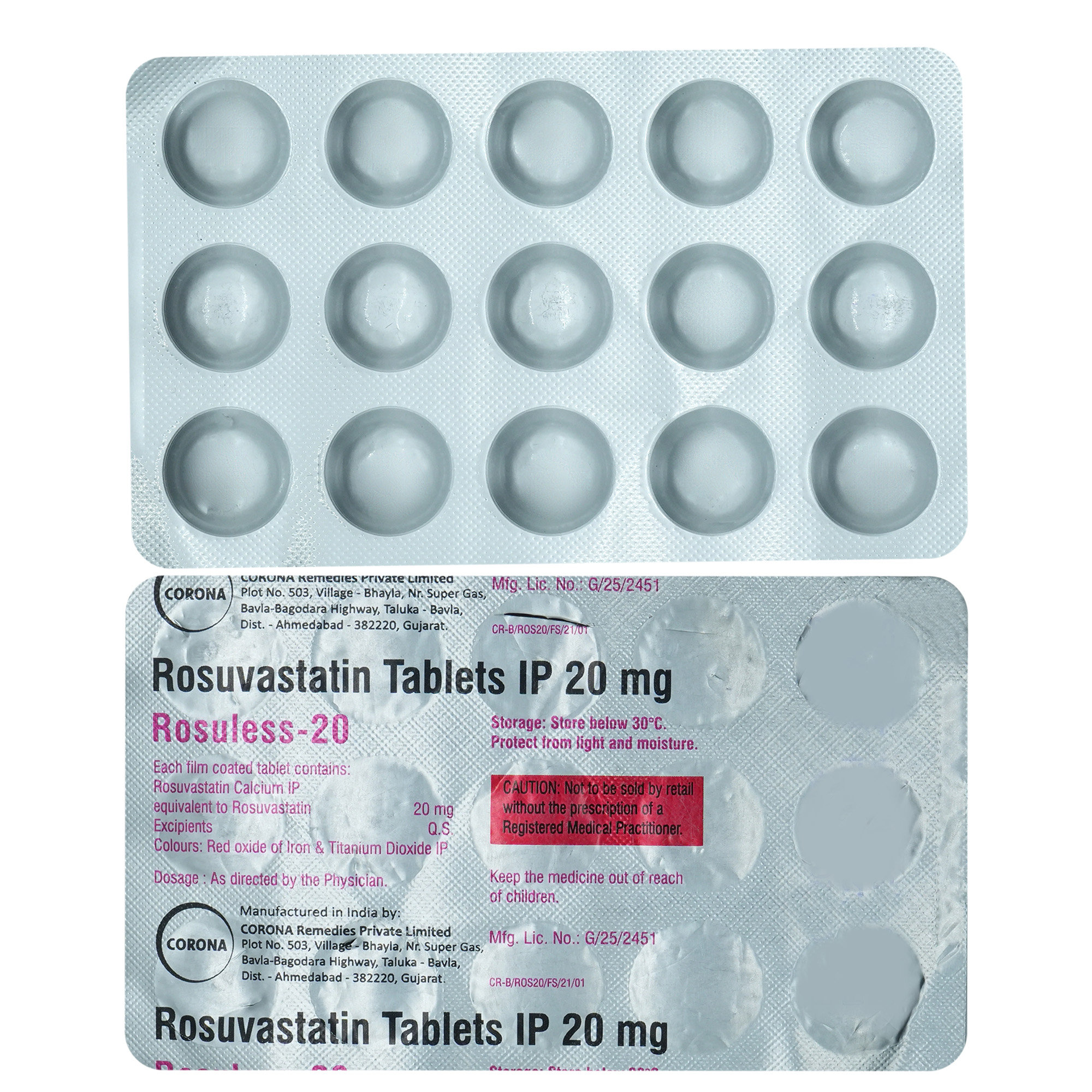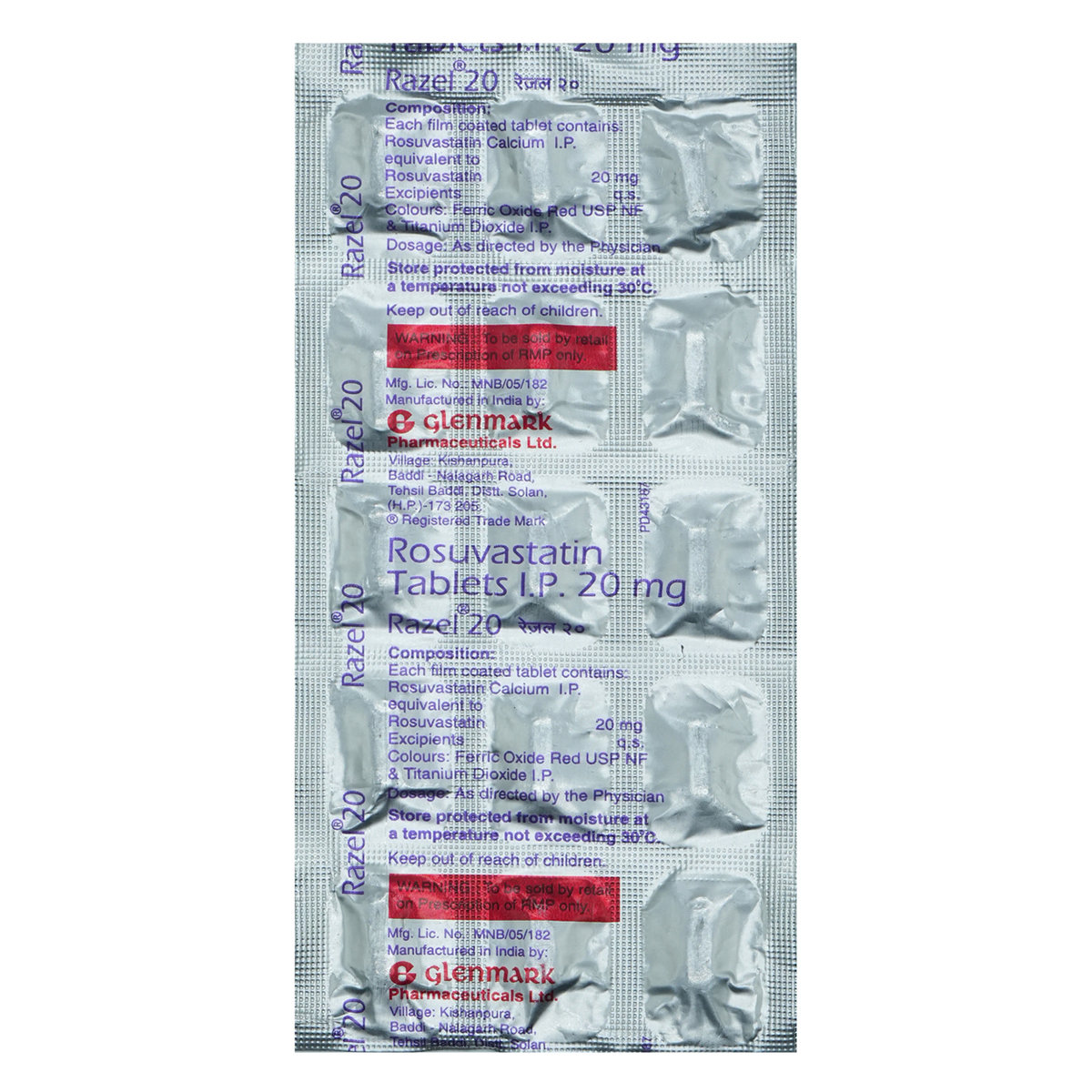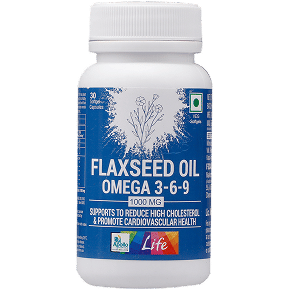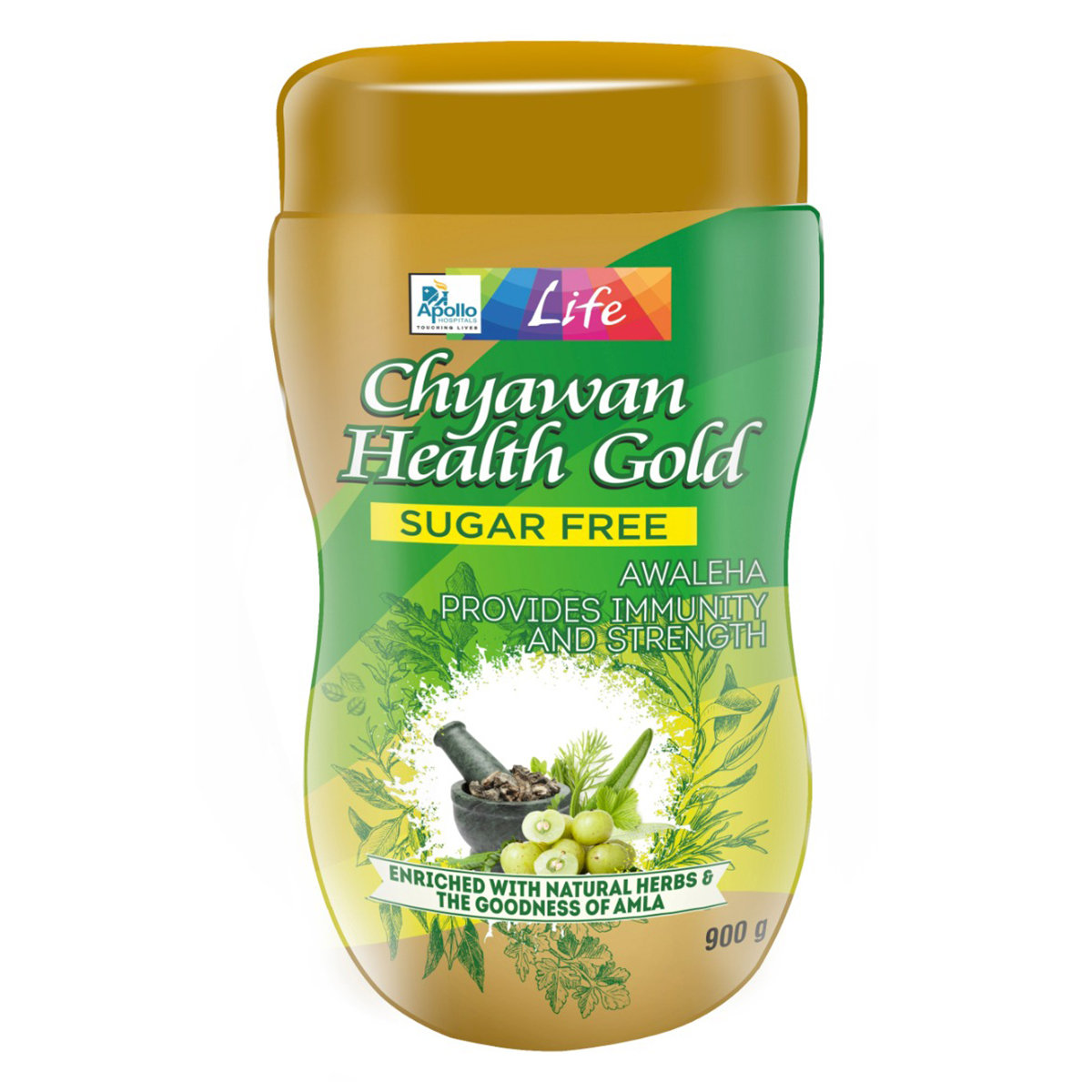Crevast 20 Tablet 15's
Selected Pack Size:15
15 ₹271.8
(₹18.12 per unit)
In Stock
MRP ₹302
(Inclusive of all Taxes)
₹45.3 Cashback (15%)
Provide Delivery Location

secured payment

india's most trusted pharmacy

genuine products
Composition :
Manufacturer/Marketer :
Consume Type :
Expires on or after :
Return Policy :
About Crevast 20 Tablet
Crevast 20 Tablet belongs to the class of medicines known as statins, which reduces bad cholesterol (low-density lipoprotein-LDL) and glyceride level, thereby reducing the risk of heart attack and stroke in the future. High cholesterol, known as hyperlipidemia or dyslipidemia, occurs when there is an excess of the unhealthy balance of cholesterol in the blood. When there is a high cholesterol level in the blood, your arteries get narrowed and clogged, finally contributing to heart diseases like stroke and heart attack.
Crevast 20 Tablet works by blocking liver enzymes, causing the liver to make less cholesterol. Crevast 20 Tablet increases the uptake and breakdown by the liver of cholesterol already in the blood. Thus, Crevast 20 Tablet lowers the levels of lipids known as cholesterol and triglycerides in the blood when lifestyle changes (like a low-fat diet) on their own have failed. Crevast 20 Tablet reduces the ‘bad’ cholesterol and increases the ‘good’ cholesterol by blocking our body’s production of ‘bad’ cholesterol. It also improves your body’s ability to remove it from your blood.
The possible side effects of Crevast 20 Tablet may include myalgia (muscle pain), asthenia (lack of energy), nausea, headache, abdominal pain, muscle pain, weakness, and daytime drowsiness. Most of these side effects of Crevast 20 Tablet do not require medical attention and gradually resolve over time. However, if the side effects are persistent, reach out to your doctor. It is important to have your lipid profile checked regularly.
This medicine is only one part of a treatment program that should include a healthy low-fat diet, regular exercise, smoking cessation, moderation of alcohol intake and weight reduction. You can normally eat while taking this medicine but avoid high-fat foods. Before starting the dose of Crevast 20 Tablet , tell your doctor if you have kidney problems, are pregnant or breastfeeding, diabetes, severe lung disease, or musculoskeletal disorder (like myopathy and rhabdomyolysis). You should avoid taking Crevast 20 Tablet with immune system affecting medicine (cyclosporine) or anti-HIV medicines (lopinavir, ritonavir, or atazanavir) as it might have a serious effect.
Uses of Crevast 20 Tablet

Have a query?
Directions for Use
Key Benefits
Crevast 20 Tablet lowers the risk of cardiovascular disease and coronary events like heart attack, stroke, and heart-related chest pain (angina). Crevast 20 Tablet is beneficial in patients who are at high risk of these events. It is also prescribed in children (aged eight years or more) suffering from familial hypercholesterolemia (a genetic disease resulting in high cholesterol) along with lipid-lowering pills and other dietary measures. Crevast 20 Tablet plays a vital role in slowing atherosclerosis progress (blocked artery walls of heart due to fat/lipid deposition leading to heart attack and stroke) in adult patients.
Storage
- Report to Your Doctor: Inform your doctor about the muscle pain, as they may need to adjust your medication.
- Stretch Regularly: Gentle stretching can help relieve muscle pain and stiffness.
- Stay Hydrated: Adequate water intake supports muscle health by removing harmful substances and maintaining proper muscle function.
- Warm or Cold Compresses: Apply cold or warm compresses to the affected area to reduce pain and inflammation.
- Rest and Relaxation: Adequate rest helps alleviate muscle strain, while relaxation techniques like deep breathing and meditation can soothe muscle tightness, calm the mind, and promote relief from discomfort.
- Gentle Exercise: Participate in low-impact activities, such as yoga or short walks, to improve flexibility, reduce muscle tension, and alleviate discomfort.
- Consult a physician: If your symptoms don't improve or get worse, go to the doctor for help and guidance.
- Please inform your doctor about joint pain symptoms, as they may adjust your medication regimen or prescribe additional medications to manage symptoms.
- Your doctor may prescribe common pain relievers if necessary to treat joint discomfort.
- Maintaining a healthy lifestyle is key to relieving joint discomfort. Regular exercise, such as low-impact sports like walking, cycling, or swimming, should be combined with a well-balanced diet. Aim for 7-8 hours of sleep per night to assist your body in repairing and rebuilding tissue.
- Applying heat or cold packs to the affected joint can help reduce pain and inflammation.
- Please track when joint pain occurs and any factors that may trigger it, and share this information with your doctor to help manage symptoms.
- If your joint pain is severe or prolonged, consult a doctor to rule out any underlying disorders that may require treatment.
- Drink water or other clear fluids.
- To prevent worsening of pain, limit intake of tea, coffee, or alcohol.
- Include bland foods like rice, toast, crackers, and rice in your diet.
- Avoid lying down immediately after eating as it may cause indigestion or heartburn.
- Avoid acidic and spicy food as it may cause indigestion.
- Inform your doctor about the nausea and discuss possible alternatives to the medication or adjustments to the dosage.
- Divide your daily food intake into smaller, more frequent meals to reduce nausea.
- Opt for bland, easily digestible foods like crackers, toast, plain rice, bananas, and applesauce.
- Avoid certain foods that can trigger nausea, such as fatty, greasy, spicy, and smelly foods.
- Drink plenty of fluids, such as water, clear broth, or electrolyte-rich beverages like coconut water or sports drinks.
- Use ginger (tea, ale, or candies) to help relieve nausea.
- Get adequate rest and also avoid strenuous activities that can worsen nausea.
- Talk to your doctor about taking anti-nausea medication if your nausea is severe.
- Record when your nausea occurs, what triggers it, and what provides relief to help you identify patterns and manage your symptoms more effectively.
- Inform your doctor about your constipation symptoms. They may adjust your medication or advise alternative treatments.
- Stay hydrated by drinking sufficient of water (at least 8-10 glasses a day) to help soften stool and promote bowel movements.
- Increase fibre intake by eating foods high in fibre, such as fruits, whole grains, vegetables and legumes, to help bulk up the stool.
- Establish a bowel routine by trying to go to the bathroom at the same time each day to train your bowels.
- Engaging in regular exercise, like walking or yoga, can support in bowel movement stimulation.
- Consult your doctor if constipation persists, and discuss alternative treatments or adjustments to your medication.
- Hydrate your body: Drink enough water to prevent dehydration and headaches.
- Calm Your Mind: Deep breathing and meditation can help you relax and relieve stress.
- Rest and Recharge: Sleep for 7-8 hours to reduce headache triggers.
- Take rest: lie down in a quiet, dark environment.
- Cold or warm compresses can help reduce tension.
- Stay Upright: Maintain good posture to keep symptoms from getting worse.
- To treat headaches naturally, try acupuncture or massage therapy.
- Over-the-counter pain relievers include acetaminophen and ibuprofen.
- Prescription Assistance: Speak with your doctor about more substantial drug alternatives.
- Severe Headaches: Seek emergency medical assistance for sudden, severe headaches.
- Frequent Headaches: If you get reoccurring headaches, consult your doctor.
- Headaches with Symptoms: Seek medical attention if your headaches include fever, disorientation, or weakness.
- Inform your doctor about dizziness symptoms. They may adjust your medication regimen or prescribe additional medications to manage symptoms.
- Follow your doctor's instructions for taking medication, and take it at the same time every day to minimize dizziness.
- When standing up, do so slowly and carefully to avoid sudden dizziness.
- Avoid making sudden movements, such as turning or bending quickly, which can exacerbate dizziness.
- Drink plenty of water throughout the day to stay hydrated and help alleviate dizziness symptoms.
- If you're feeling dizzy, sit or lie down and rest until the dizziness passes.
- Track when dizziness occurs and any factors that may trigger it, and share this information with your doctor to help manage symptoms.
Drug Warnings
A prolonged intake of Crevast 20 Tablet may cause muscular disorders like myopathy and rhabdomyolysis with kidney damage. A person taking excess alcohol and affected with liver disease should consult a doctor before its intake. Caution should be exercised if you are taking any blood thinner or anticoagulants like warfarin or coumarin. At least 2 hours gap should be maintained between intake of Crevast 20 Tablet and antacids like magnesium hydroxide and aluminium hydroxide. Increases in HbA1c and fasting glucose levels can be observed if a person regularly takes Crevast 20 Tablet . So you should tell the doctor before having these diabetes tests. Patients with proteinuria (protein in urine) or haematuria (blood in urine) should tell the doctor before taking the Crevast 20 Tablet , as it might require dose adjustment. It is recommended that you should have a liver enzyme test regularly if you are regularly taking Crevast 20 Tablet .
Drug-Drug Interactions
Drug-Drug Interactions
Login/Sign Up
Coadministration of colchicine and Crevast 20 Tablet may increase the risk of conditions that affect your muscles and kidneys.
How to manage the interaction:
Taking Colchicine with Crevast 20 Tablet may possibly result in an interaction, but they can be taken together if prescribed by your doctor. However, contact your doctor immediately if you experience abdominal discomfort, nausea, vomiting, diarrhea, back pain, weakness, or tingling or numbness in your hands and feet. Do not discontinue any medication without consulting your doctor.
Co-administration of Crevast 20 Tablet and Atazanavir can increase the blood levels of Crevast 20 Tablet and can increase the risk of liver damage and rhabdomyolysis( breakdown of skeletal muscle tissue).
How to manage the interaction:
Co-administration of Crevast 20 Tablet and Atazanavir can lead to an interaction, it can be taken if advised by your doctor. However, if you experience any symptoms like muscle pain, tenderness, weakness, dark-colored urine, fever, chills, joint pain or swelling, unusual bleeding or bruising, skin rash, itching, loss of appetite, fatigue, nausea, vomiting, and yellowing of the skin or eyes, consult the doctor immediately. Do not stop using any medications without a doctor's advice.
Taking Crevast 20 Tablet with clopidogrel can increase the blood levels of Crevast 20 Tablet. This can increase the risk of side effects.
How to manage the interaction:
Although taking clopidogrel together with Crevast 20 Tablet may result in an interaction, it can be taken if prescribed by your doctor. However, consult your doctor immediately if you experience chills, joint pain or swelling, skin rash, itching, nausea, vomiting, dark-colored urine, and/or yellowing of the skin or eyes. Do not discontinue any medication without consulting your doctor.
Co-administration of ciclosporin with Crevast 20 Tablet can increase blood levels of Crevast 20 Tablet. This can increase the risk of developing side effects.
How to manage the interaction:
Co-administration of cyclosporine and Crevast 20 Tablet can lead to an interaction, it can be taken if advised by your doctor. However, if you experience any symptoms like muscle pain, tenderness, weakness, or dark-colored urine, light colour stools, consult the doctor immediately. Do not stop using any medications without a doctor's advice.
Co-administration of Saquinavir and Crevast 20 Tablet can increase the blood levels of Crevast 20 Tablet and can increase the risk of developing liver damage and rhabdomyolysis(breakdown of skeletal muscle tissue).
How to manage the interaction:
Co-administration of Saquinavir and Crevast 20 Tablet can lead to an interaction, it can be taken if advised by your doctor. However, if you experience any symptoms like muscle pain, tenderness, weakness, dark-colored urine, fever, chills, joint pain or swelling, unusual bleeding or bruising, skin rash, itching, loss of appetite, fatigue, nausea, vomiting, and yellowing of the skin or eyes, consult the doctor immediately. Do not stop using any medications without a doctor's advice.
Coadministration of Nicotinamide with Crevast 20 Tablet may increase the risk and severity of side effects like rhabdomyolysis (breakdown of skeletal muscle) or kidney damage which can be fatal.
How to manage the interaction:
Taking Nicotinamide with Crevast 20 Tablet together can result in an interaction, but it can be taken if your doctor has advised it. If you notice any symptoms like unexplained muscle pain, muscle stiffness or tenderness, fever, dark-coloured urine, or weakness, you should contact your doctor immediately. Do not stop using any medications without first talking to your doctor.
Co-administration of Simeprevir and Crevast 20 Tablet can increase the blood levels of Crevast 20 Tablet and can increase the risk of side effects like liver damage and rhabdomyolysis( breakdown of skeletal muscle tissue).
How to manage the interaction:
Co-administration of Simeprevir and Crevast 20 Tablet can lead to an interaction, it can be taken if advised by your doctor. However, if you experience any symptoms like muscle pain, tenderness, weakness, dark-colored urine, fever, chills, joint pain or swelling, unusual bleeding or bruising, skin rash, itching, loss of appetite, fatigue, nausea, vomiting, and yellowing of the skin or eyes, consult the doctor immediately. Do not stop using any medications without a doctor's advice.
Co-administration of leflunomide and Crevast 20 Tablet can increase the risk of developing liver problems.
How to manage the interaction:
Co-administration of Leflunomide and Crevast 20 Tablet can lead to an interaction, they can be taken together if prescribed by a doctor. However, if you experience fever, chills, joint pain or swelling, unusual bleeding or bruising, skin rash, itching, less desire to eat, fatigue, nausea, vomiting, abdominal pain, or yellowing of the skin or eyes, contact a doctor immediately. Do not discontinue any medications without consulting a doctor.
Co-administration of Crevast 20 Tablet and Fenofibrate can increase the blood levels of Crevast 20 Tablet and can increase the risk of liver damage and rhabdomyolysis(breakdown of skeletal muscle tissue).
How to manage the interaction:
Co-administration of Crevast 20 Tablet and Fenofibrate can lead to an interaction, it can be taken if advised by a doctor. However, if you experience any symptoms like muscle pain, tenderness, weakness, dark-colored urine, fever, chills, joint pain or swelling, unusual bleeding or bruising, skin rash, itching, loss of appetite, fatigue, nausea, vomiting, and yellowing of the skin or eyes, consult the doctor immediately. Do not stop using any medications without a doctor's advice.
Co-administration of Crevast 20 Tablet with lenalidomide may increase the risk of a rare condition called rhabdomyolysis (breakdown of skeletal muscle tissue).
How to manage the interaction:
Although there is an interaction between lenalidomide and Crevast 20 Tablet, it can be taken if prescribed by a doctor. However, if you experience muscle pain, tenderness, or weakness, consult the doctor immediately. Do not discontinue any medications without consulting a doctor.
Drug-Food Interactions
Drug-Food Interactions
Login/Sign Up
Diet & Lifestyle Advise
- Keep your weight under control with a BMI of 19.5-24.9.
- Do regular physical activity or exercise.
- Opt for a diet rich in whole grains, fruits, veggies, and low-fat dairy products.
- Quitting smoking is the best strategy to lower the risk of heart disease.
- Avoid chronic stress. Try to enjoy and spend time with your loved ones to cope with stress and practice mindfulness techniques.
- Including heart-healthy omega-3 fatty acid-containing food drinks in your daily diet.
Habit Forming
Therapeutic Class
All Substitutes & Brand Comparisons
RX
Rosuless-20 Tablet 15's
Corona Remedies Pvt Ltd
₹191.5
(₹11.49 per unit)
36% CHEAPERRX
Ab-Rozu 20 Tablet 10's
Abbott India Ltd
₹188
(₹18.8 per unit)
3% COSTLIERRX
Razel 20 Tablet 15's
Glenmark Pharmaceuticals Ltd
₹369
(₹22.14 per unit)
22% COSTLIER
Special Advise
- Your doctor may advise on regular monitoring of liver function tests to monitor the liver enzymes.
FAQs
Crevast 20 Tablet works by blocking liver enzymes, causing the liver to make less cholesterol. So, Crevast 20 Tablet increases the uptake and breakdown by the liver of cholesterol already in the blood. Thus, Crevast 20 Tablet lowers the levels of lipids known as cholesterol and triglycerides in the blood when lifestyle changes (like a low-fat diet) on their own have failed.
No, Crevast 20 Tablet should not be stopped even if you feel better as it lead to worsening of your condition. Please consult your doctor if you feel better and do as advised.
Crevast 20 Tablet can cause liver damage in very rare cases, specially when alcohol is consumed along with Crevast 20 Tablet . Caution should be taken in patients who have any underlining liver problem or history of any liver impairment and also inform your doctor before taking Crevast 20 Tablet so that dose is adjusted accordingly.
It's unlikely that Crevast 20 Tablet affects fertility in men or women. However there's not enough evidence to say for certain. Crevast 20 Tablet should be avoided if your pregnant or planning for pregnancy. For best advise, consult your doctor.
Yes, taking Crevast 20 Tablet can cause muscle aches or pains especially if you feel unwell or have a fever. Also please tell your doctor if you have a muscle weakness that is constant.
Yes, Crevast 20 Tablet can be taken at night or any other time with or without food. It is better to take it at fixed time.
Yes, Crevast 20 Tablet can cause dizziness. It is advised to avoid driving or operate any heavy machinery while taking Crevast 20 Tablet . In case you feel dizzy or lightheaded, it is advised to rest for some time until you feel better.
Before starting dose of Crevast 20 Tablet tell your doctor if you have liver/kidney problems, under active thyroid (hypothyroidism), are pregnant or breastfeeding, diabetes, severe lung disease, blood in urine (haematuria) and protein in urine (proteinuria) or musculoskeletal disorder (like myopathy and rhabdomyolysis). You should avoid taking Crevast 20 Tablet with immune system affecting medicine (cyclosporine) or anti HIV medicines (lopinavir, ritonavir, or atazanavir) as it might have serious effect.
Usually, it is not safe to take Crevast 20 Tablet with fusidic acid as it may lead to muscle weakness, tenderness or pain. Please consult your doctor before taking Crevast 20 Tablet along with fusidic acid.
Country of origin
Manufacturer/Marketer address
Disclaimer
Recommended for a 30-day course: 2 Strips










